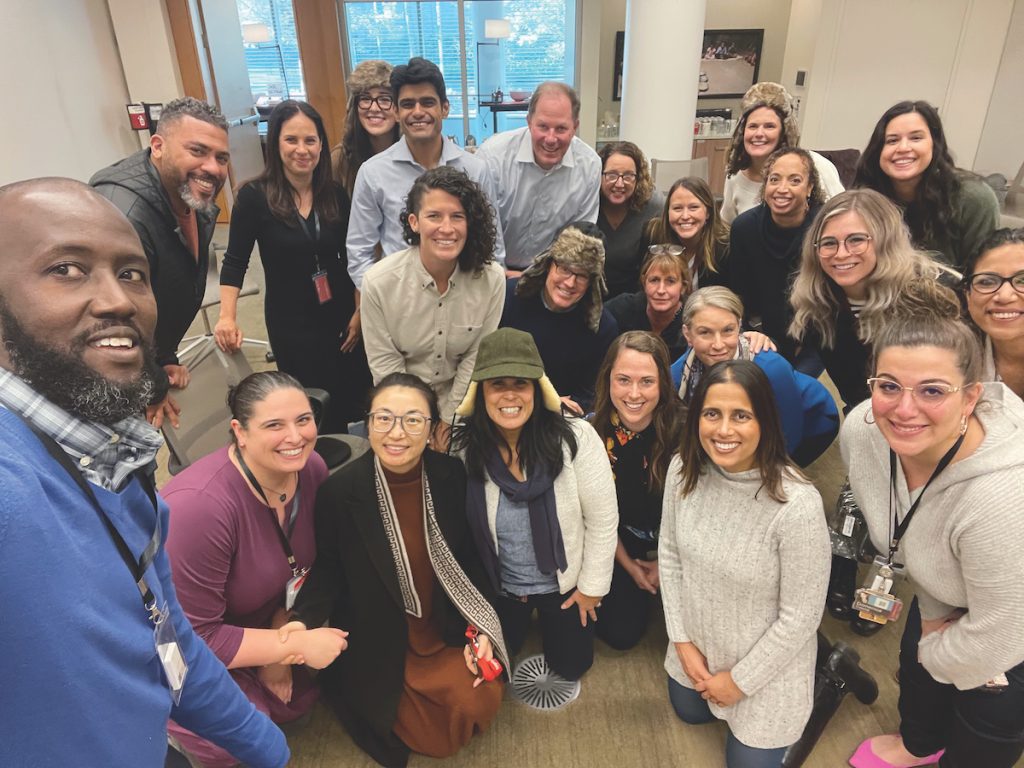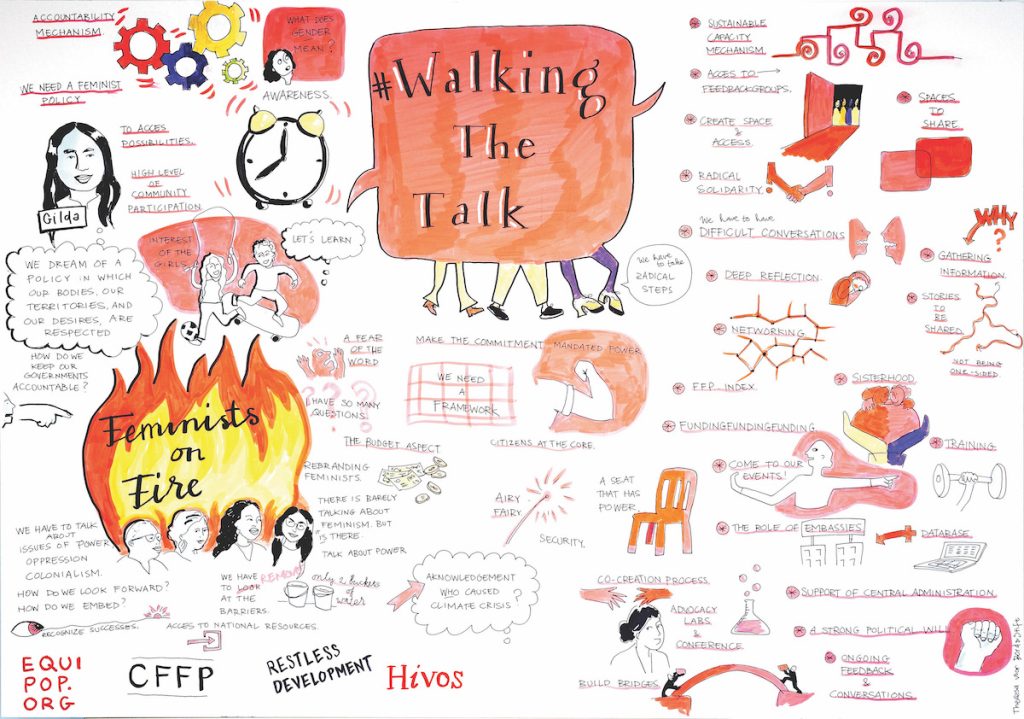Bill & Melinda Gates Foundation

Grassroots and Grasstops
Even among nonprofit giants, the Bill & Melinda Gates Foundation is a behemoth. With an $8.6 billion budget for 2024 – larger than the GDP of many small island nations – the Gates Foundation exists in its own stratosphere. As of December 2022, their endowment was $67.3 billion. But here’s what really makes them a giant among giants: They plan to give all that money away. In his annual letter, CEO Mark Suzman announced a new goal to raise the budget to $9 billion by 2026 in furtherance of Bill and Melinda Gates’ commitment to spend down the endowment within 20 years of their deaths. And they’re calling on other billionaires to do the same via the Giving Pledge, which is a promise by the world’s wealthiest individuals and families to dedicate the majority of their wealth to charitable causes.
Prioritizing Gender Equality
From its perch atop the philanthropic ecosystem, the Gates Foundation acts as a convener and catalyst, and in the last decade, one of its top priorities has been gender equality. It’s a deeply felt belief that resonates throughout the foundation. When asked why it matters to lift up women and girls, Alex Jakana, a former journalist and now senior program officer for Philanthropic Partnerships at the Gates Foundation, cites the women in his life and his experiences in Uganda, the U.K., and the U.S., witnessing the same challenges for women repeat themselves and how little progress has been made. He also makes an elegant, practical case for gender equality: “If you go to the gym and you work out your left side more than your right side, [the imbalance] is going to affect your entire system. Anything other than equality is the definition of self-harming.”
Katelen Kellogg, communications officer at the foundation, credits her education in gender theory and feminist philosophy, and the explanatory power of a gender lens for steering her into philanthropy, first in LGBTQ+ rights and now at the Gates Foundation. “When women and girls are lifted up, they lift up an entire community with them. It’s proven over and over again that women invest in community and the world around us. It’s a ‘rising tides lift all boats’ scenario.”
Although women and girls have always benefited from the foundation’s programming more broadly, it wasn’t until 2014 that the Gates Foundation made its first set of explicit investments in gender equality. Following the 2015 adoption of the 17 United Nations Sustainable Development Goals (SDGs) – world development goals that call for a concerted effort toward building an inclusive, sustainable, and resilient future for the people and the planet – the foundation began to scale its investment in gender equality. In 2018, the Gates Foundation launched its first strategy on gender equality, and by 2020, gender equality had its own division. This increasing commitment meant more funding to partners working directly on gender equality, and also an internal structural shift to intentionally and explicitly apply a gender lens and track relevant data across all of the foundation’s divisions.
Philanthropic Partnerships – Making It Easier for Funders to Learn and Collaborate
The foundation serves a number of roles within the feminist funder space, this includes a Philanthropic Partnerships strategy to inspire and enable donors to give more generously. According to Jakana, their team’s goal is to facilitate philanthropy by asking, “What mechanisms would make giving easier and more frictionless?” Their target audience is the donor who says, “I want to fund this issue, but I don’t know where to write the check.” As Jakana argues, “Gender inequality, for example, is universe-sized,” and people are easily put off from acting. The Gates Foundation is there to provide community and support. This includes providing research and data, and partnering with learning communities like Greenwood Place, where they’ve planned a deep dive for donors on gender equality as defined by SDG 5.
One data point they’re tracking: Women are poised to inherit a massive amount of wealth in the coming decades as older generations pass. According to the management consulting firm McKinsey, women in just the U.S. are expected to inherit around $30 trillion by 2030.
The Gates Foundation sees this wealth transfer to women as an opportunity to build philanthropic networks, pool community resources, and fund programs for gender equality. The foundation takes a similar approach to all its partnerships: “We’re trying to bring resources together and be a convener in a way that’s so often missing in terms of gaps in the market and the larger ecosystem.”

This fits within the Gates Foundation’s ethos that we need both “grassroots and grasstops.” Kellogg describes their theory of systemic change: “You not only need power, brilliance, and expertise from community, but that needs to then be transferred up to the people in government who are making policy decisions and funding decisions related to what those communities are actually receiving.”
On the funder side, what does that look like? Susan Sherrerd was part of a pilot cohort learning journey sponsored by the Foundation to participate in and reflect together on the Women Deliver 2023 Conference. When asked why she funds gender equality, she says, “I believe in a gender equal world without sexism, discrimination, and gender-based violence. Gender equality — besides being a fundamental human right — benefits everyone, men as well as women.” It’s essential, she says, to achieve peaceful societies and a sustainable world. As for what message she would share with prospective Giving List Women donors? Don’t wait until you think you’re ready. “Confidence and skill come from making the grants,” she says. Also, manage your expectations and think long-term because social change work isn’t like vaccine development, for example, with a clearly defined problem and solution. No one organization, institution, or donor can solve gender equality on their own. Don’t duplicate efforts. “Giving collaboratively with other donors leverages my grants and catalyzes my impact to address the scale and complexity of gender inequality.”
Collaborative Funds – Grantee Partners as Critical Intermediaries
Increasingly the money going to fuel gender equality is being directed to collaborative funds, critical intermediaries with local relationships, cultural context, and skills in advocacy and communications. These collaboratives increasingly practice Trust-Based Philanthropy and are often led by women and people of color. The end goal is to close the distance between donors and grassroots organizations already doing the work in their own communities. To do that, the foundation seeks out grantee partners that build bridges – nonprofit partners, regional funds, feminist collectives that are best positioned to act as intermediaries. “Bridge-building reduces the likelihood of losing things in translation. It speeds up the ability to be able to connect. It reduces the likelihood of hurting while you’re trying to help,” says Jakana.
One grantee, Komboa, is an African regional collective of feminist funds whose name translates to “transform” in Arabic, “liberate” in Swahili, and “resist” in Creole. Komboa describes itself and its mission as follows: “Each institution in the collective exists to resource different communities within the dynamic and broad demographic of African women, girls, and gender-diverse peoples, with evidence-based and community-informed strategies that advance gender justice and center the experiences of their target communities. Our collective mission is to resource and strengthen feminist resistance, movements, and collectives across Africa, enabling them to advance gender justice and be inclusive, and resilient to the attacks from anti-rights movements.”

Another grantee, Walking the Talk, is a European consortium of organizations advocating the full potential of feminist foreign policy. Like Komboa, Walking the Talk is a regional collective responding to the global backlash against women’s rights. They’ve united to unlock “a feminist foreign policy that places gender equality and the rights of women, LGBTIQ+ people, and other marginalized groups at the heart of all areas of foreign policy – be it trade, diplomacy, global health, climate justice, or security. From the four Rs – Rights, Representation, Resources, Reality Check – Walking the Talk focuses on getting more Resources into the hands of feminist movements in the Global South.”
The Gates Foundation’s pledge to “spend it all down” will have a tremendous, enduring impact across philanthropy. But their efforts to inspire billions to intersectional feminist collaboratives enabling grassroots activists to make continental-scale systemic change will likely have a global transformative impact driving progress for women and girls around the world.
Bill & Melinda Gates Foundation
Donate now!https://www.gatesfoundation.org/
Deputy Director, Women in Leadership: Iris Mwanza
Mission
Our mission is to create a world where every person has the opportunity to live a healthy, productive life.
Begin to Build a Relationship
We know you care about where your money goes and how it is used. Connect with this organization’s leadership in order to begin to build this important relationship. Your email will be sent directly to this organization’s director of development and/or Executive Director.